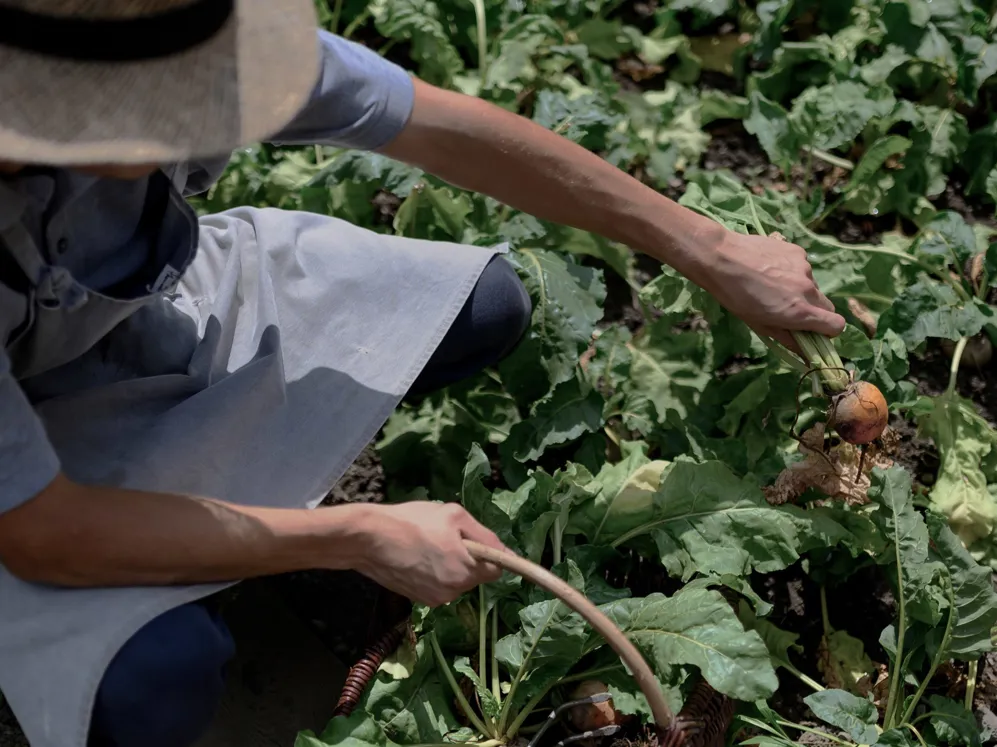
Words Vidula KotianDate 27 June 2020
Among the first restaurants championing local, sustainable produce was Chez Panisse in Berkeley, California in 1971 by Alice Waters who inspired a generation of chefs to follow in her footsteps. The 2000s, however, saw an explosion in the health food mindset, giving rise to everything from superfoods, community-supported agriculture, to farm-to-fork restaurants. While the farm-to-table trend may have gotten a bad rep in recent times, thanks to false claims and extra lengthy menus citing every single food source, its contribution to the popularity of sustainable farming and the rise of small producers and farmers is undeniable.
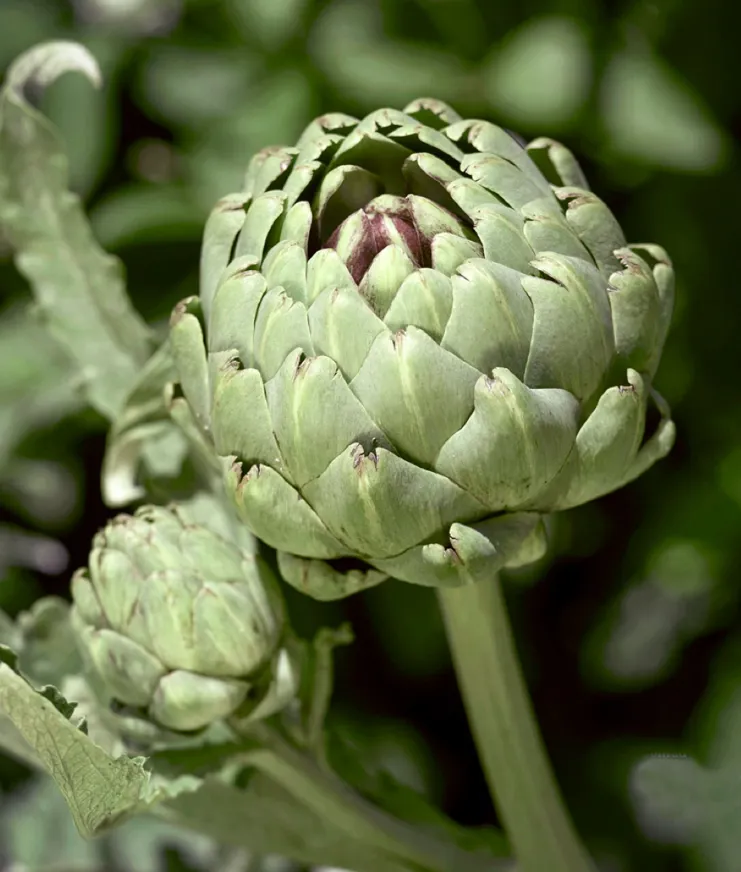
Fresh, organic produce find their way from Villa Arnica's gardens to guests' plates
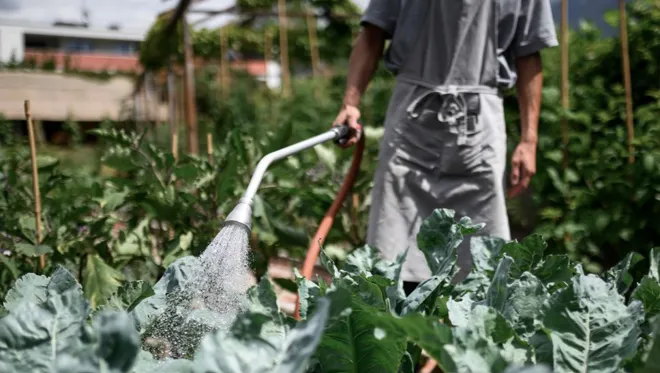
Sustainable practices are employed in the villa's garden
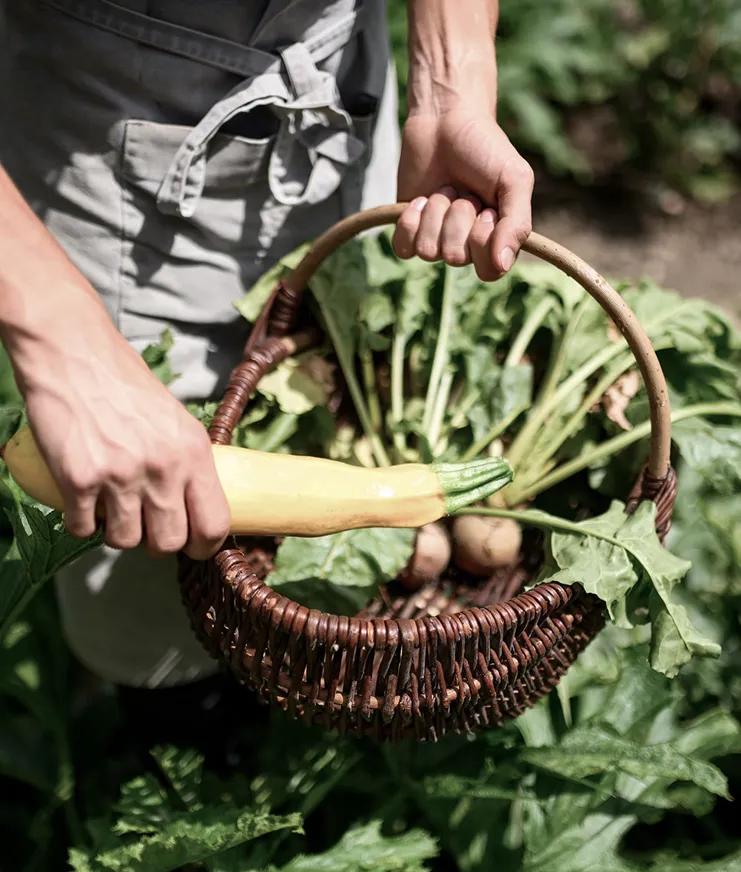
Skilful hands turn the freshest ingredients into scrumptious meals
Set in Lana, a mountainous Italian town affectionately known as the Orchard of South Tyrol, 1477 Reichhalter is a small guesthouse with a big heart. The property’s former trattoria was given a new lease of life by native Klaus Dissetori who roped in passionate local foodies Martina and Andreas Heinisch. The menu here celebrates the bounteous offerings of South Tyrol in fresh inventive ways. It’s no wonder that this Gasthaus bagged the top Monocle Restaurant Awards 2019. At its sister property located nearby, Villa Arnica’s elegant muted interiors offer a rich contrast to the explosion of colors outside, thanks to jewel hued blooms, incandescent butterflies, oleanders, and apple trees. Fruits, vegetables, herbs, and even flowers find their way from the hotel’s gardens to guests in the form of homemade jams, cakes, and seasonal dishes.
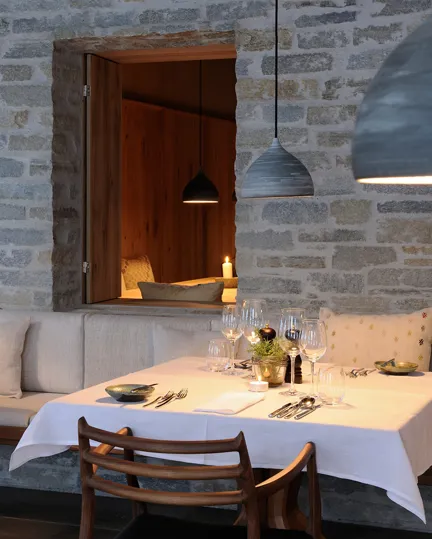
For a taste of glam farm life, head to Wiesergut. Located directly on the ski slopes of Saalbach-Hinterglemm in Austria, this bold contemporary retreat is a masterfully renovated 1300s estate that serves locally sourced foods amid luxurious alpine design. The estate has had a working farm for three generations and current owner Josef Kröll worked with local masters through the country’s apprenticeship system to hone his skills. And it shows in the fresh vegetables and herbs from the gardens that inform the age-old family recipes served, the milk and meat that comes from the farm’s Pinzgau cows, and eggs from the hens. In the summer, Wiesergut transforms into a veritable edible garden with wild herbs, berries, and fruits from the meadow orchards.
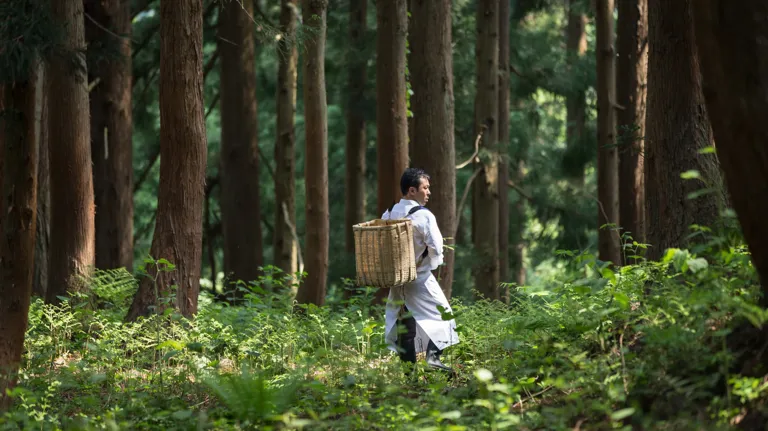
Food Director Yutaka Kitazaki forages traditional mountain vegetables in Minami-Uonuma
The story of organic growth and harvest is told at Satoyama Jujo’s Sanaburi restaurant through the cuisine inspired by the Minami-Uonuma region where it is located. The narrators of this culinary tale are chef Yutaka Kitazaki who previously worked at a three-Michelin-star restaurant, food creator Keiko Kuwakino who specializes in Ayurveda and vegan/vegetarian options, and owner of Satoyama Jujo Toru Iwasa who runs the Organic Express, a project that supplies organic produce to online shoppers while shedding light on the production process and the farmers’ stories. The luxurious dishes they’ve dreamed up are very unusual for a traditional Japanese inn and ingredients include wild mountain vegetables, nuts, and mushrooms picked by the restaurant staff as well as organic vegetables farmed by the staff. A time-consuming process to ferment and preserve the food means that they can still offer a wild variety in the winter.
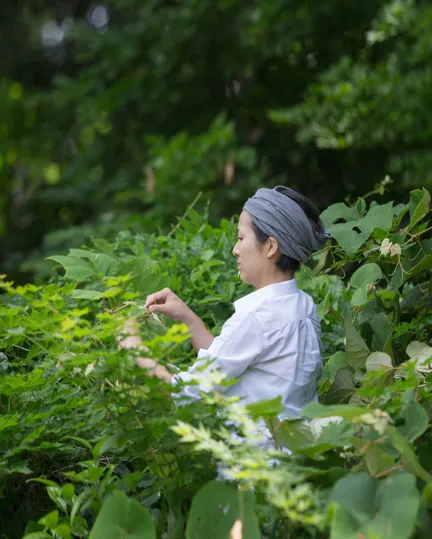
Keiko Kuwakino's speciality is vegetables seasoned with body-healing spices
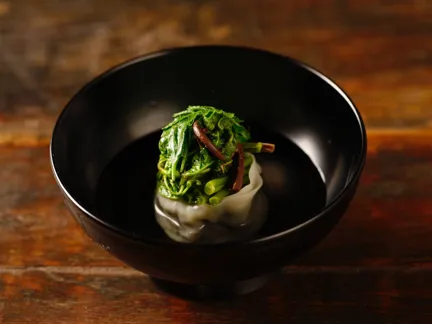
Satoyama Jujo's menu features locally sourced seasonal vegetables and seafood from the Sea of Japan